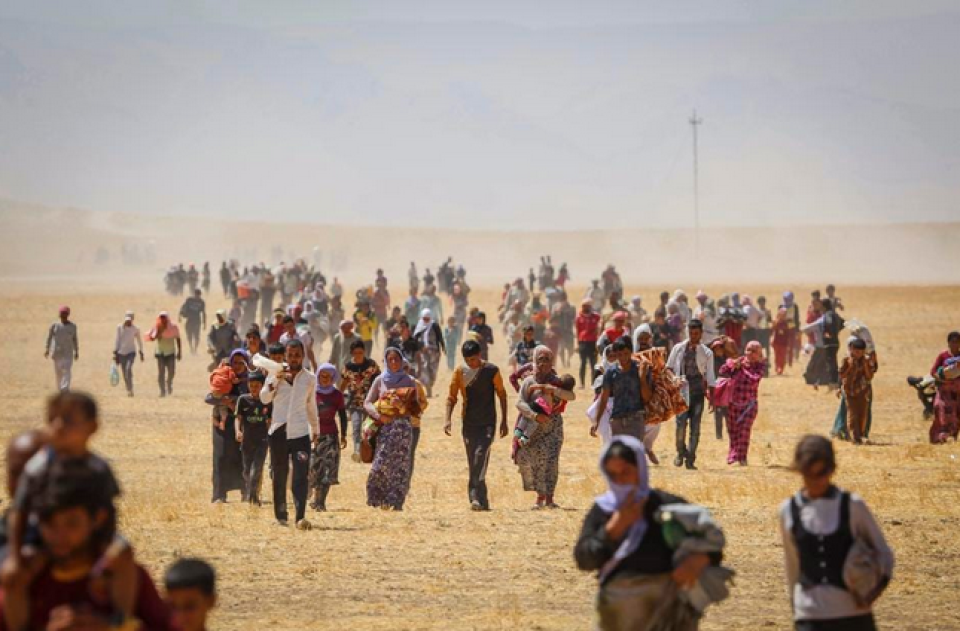By: Dr. Ewelina U. Ochab , forbes
Over the last few months, the world has been watching the disastrous US withdrawal from Afghanistan and what followed in the aftermath - the violent takeover by the Taliban and a massive U-turn on human rights for all, especially women. Over the coming months, the US will be withdrawing its remaining troops from Iraq, currently standing at around 2,500. The withdrawal may also turn ugly and that the old threats may resurface. Indeed, the UN assesses that there are approximately 10,000 Daesh fighters in Syria and Iraq combined. The UN has warned that Daesh has been using the Covid-19 crisis to re-group and consolidate power in the region once again. Once the US withdraws completely, Daesh fighters may use the limbo to try to increase its power and influence in the territories as before.
The world should not forget the atrocities perpetrated by Daesh fighters against religious minorities in Syria and Iraq in 2014 and in the years that followed. Those atrocities include murder, enslavement, deportation and forcible transfer of population, imprisonment, torture, abduction of women and children, exploitation, abuse, rape, sexual violence, sexual slavery and much more. The atrocities committed by Daesh are now recognized as crimes against humanity, war crimes and even genocide, the crime of crimes. The world cannot forget the particular wickedness of the atrocities. Video footage of beheadings, of kidnapped victims thrown from high buildings or burnt alive. These graphic images will be difficult to forget. Until this day, some 2,763 Yazidi women and children are still missing, whether in unknown location or dead.
The UN has been warning about the ongoing threat posed by Daesh and its attempts to grow in power yet again, including by abusing the instability brought about by the Covid-19 pandemic. Despite the fact that Iraq declared victory over Daesh back in 2017, Daesh fighters have been present in the region in the years since. They continue to emerge periodically. Because of that, for example, in August 2021, Iraq launched a security operation to hunt down Daesh militants north of the capital Baghdad. Reportedly, Daesh militants “have an active presence in Tarmiyah district, 50 kilometers north of Baghdad, from where they launch attacks inside the Iraqi capital.”
In early 2021, Alliance defense ministers have agreed to significantly raise the number of troops for the NATO Mission in Iraq, reportedly, from 500 to 4,000. However, this is still far from the assessed number of Daesh fighters and their capability to recruit new members, as we have seen in 2013 and 2014.
If the withdrawal from Iraq happens at the end of 2021, States must have a comprehensive action plan to prevent the disaster that we have witnessed in Afghanistan (mindful of the differences between the states but mindful of the risks involved). States must be ready to act to prevent the atrocities against religious minorities in Iraq, minorities which were subjected to genocidal atrocities only a few years ago. This is the time that States must act on the promise of Never Again and prevent avoidable atrocities against religious minorities.

If the withdrawal from Iraq happens at the end of 2021, States must have a comprehensive action plan to prevent the disaster that we have witnessed in Afghanistan. States must be ready to act to prevent the atrocities against religious minorities in Iraq, minorities which were subjected to genocidal atrocities only a few years ago.

















